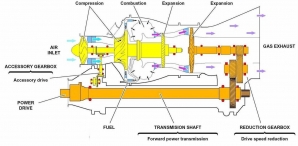Safety first: Airlines’ security procedures under lens after AI stun grenade incident
Monday, 30 November -0001 00:00
The Ministry of Civil Aviation has begun a comprehensive security audit for all airlines, after the recent Air India episode which saw various arms tying themselves up in knots. A senior official in the ministry said all airlines will be evaluated on their security procedures by senior ministry officials over the next few weeks. The ministry will examine whether airlines have adequate manpower to conduct mandatory security checks before each flight and whether airlines are following guidelines laid down by BCAS - Bureau of Civil Aviation Security - in this regard.
The official also said that in the case of Air India, inspection revealed close to 1,000 vacancies in the department which oversees aircraft security. "We have asked the airline to fill these up soon", he said without elaborating.
This official also said that as per BCAS guidelines, seven people are needed to complete security check of an aircraft - four for guarding it and three to inspect it. This means a huge requirement of manpower which many airlines are unable to deploy because of cost considerations.
The decision to evaluate security procedures of all airlines comes after a security scare aboard an Air India aircraft in which a used stun grenade was found earlier this month.
The aircraft was initially meant as a standby for Prime Minister Narendra Modi to fly to the US but was later released. Then, it was used by the airline as a commercial flight from Mumbai to Jeddah via Hyderabad. At Jeddah, security checks before the return flight revealed an object over which various arms of the ministry and the airline made confusing statements.
Air India said in a statement on October 4 that the object found in the aircraft was just a plastic wrapper. But Civil Aviation Minister A Gajapathi Raju said the same day it was indeed a used stun grenade and ordered suspension of four people because of the security lapse. Two ground handlers - who are responsible for cleaning an aircraft before each flight - and two people from Air India's security wing have been suspended.
Why did the airline try to brush aside the security lapse? Was there pressure from some other government departments to avoid a scare? The official quoted earlier did not confirm this but said that at no point was the Prime Minister's security under threat since the aircraft in question had been released before the used grenade was found.
The incident probably has an innocuous explanation: The security forces were probably conducting a drill on board the aircraft and may have left the used grenade by mistake. Since it was not live, it would not have probably caused any harm.
But the questions raised are valid: Why did the cleaning staff fail to detect an object like this and more significantly why was the mandatory security drill lax in missing it too? An audit of security procedures for all airlines is a welcome move.
Only, severely cash strapped Indian carriers may not want to hire the large workforce needed to conform to the BCAS rule of having seven people available to check an aircraft.
Our Packages



News & Events
Chennai International Airport completes its first phase of flood-proofing after deluge last year. Is it enough?
Monday, 14 November 2016 05:40
The employees of the Chennai International Airport can’t forget how water engulfed the tarmac on December…Nine flights diverted over Delhi smog
Monday, 07 November 2016 05:49
JAIPUR: Nine flights, including three chartered planes were delayed by 4-5 hours from landing in Delhi…From The Blog

